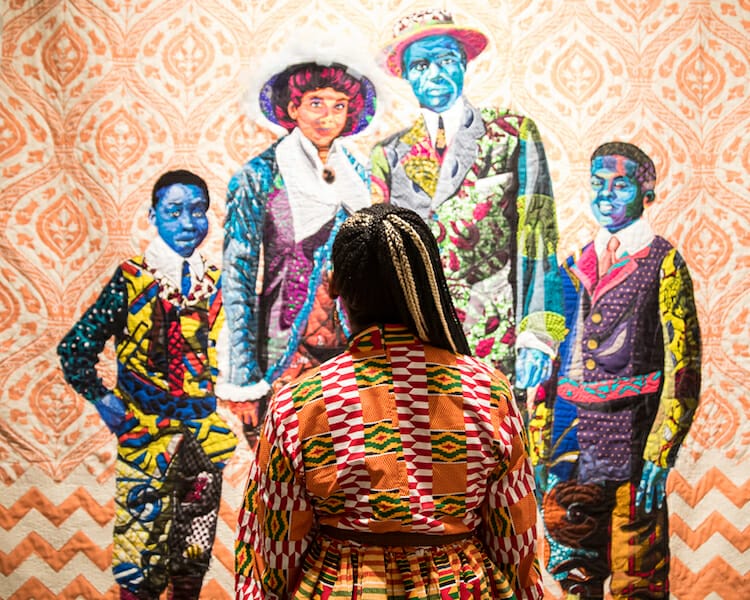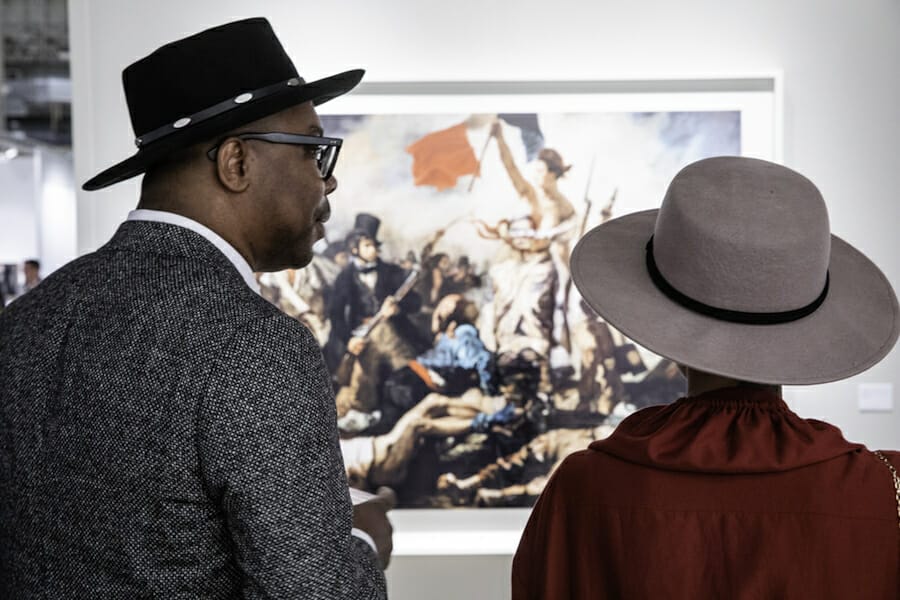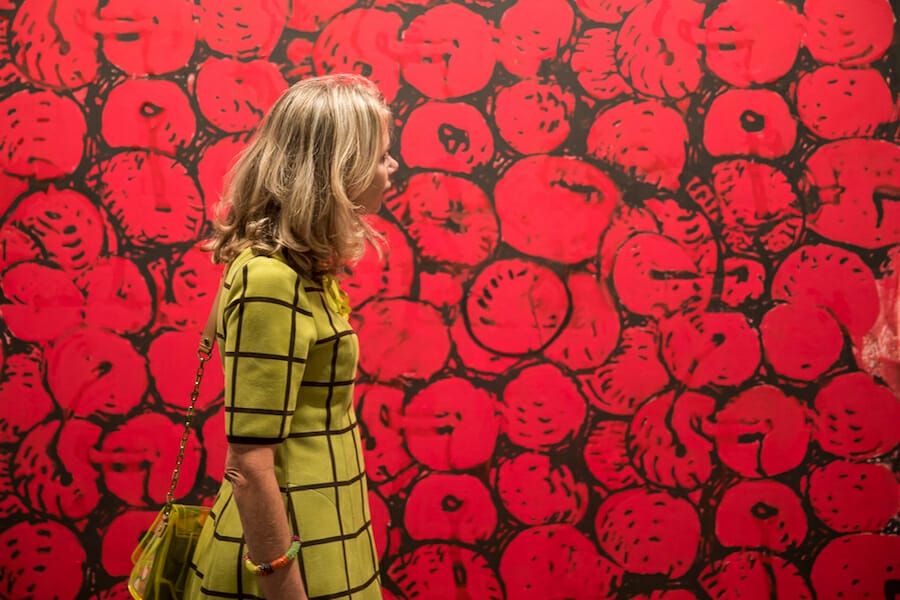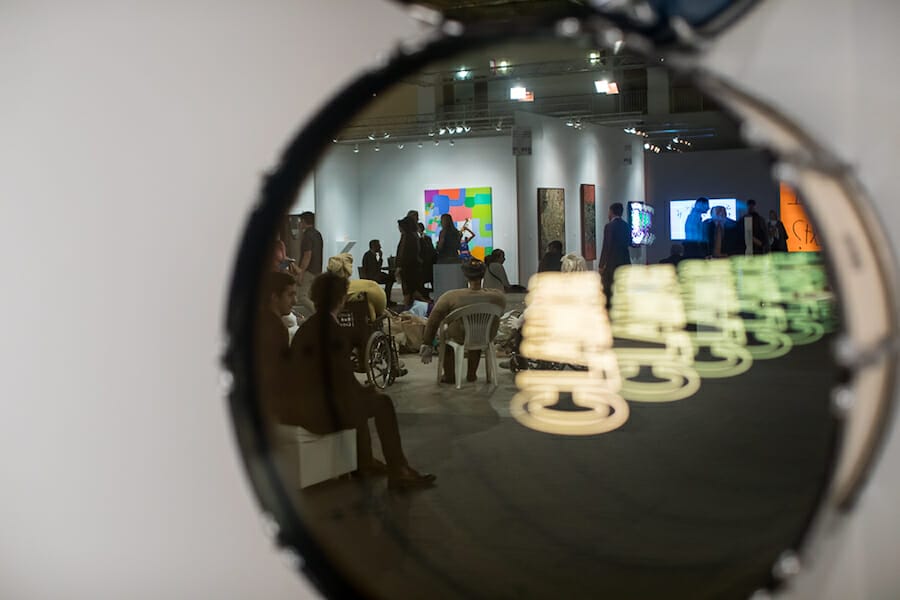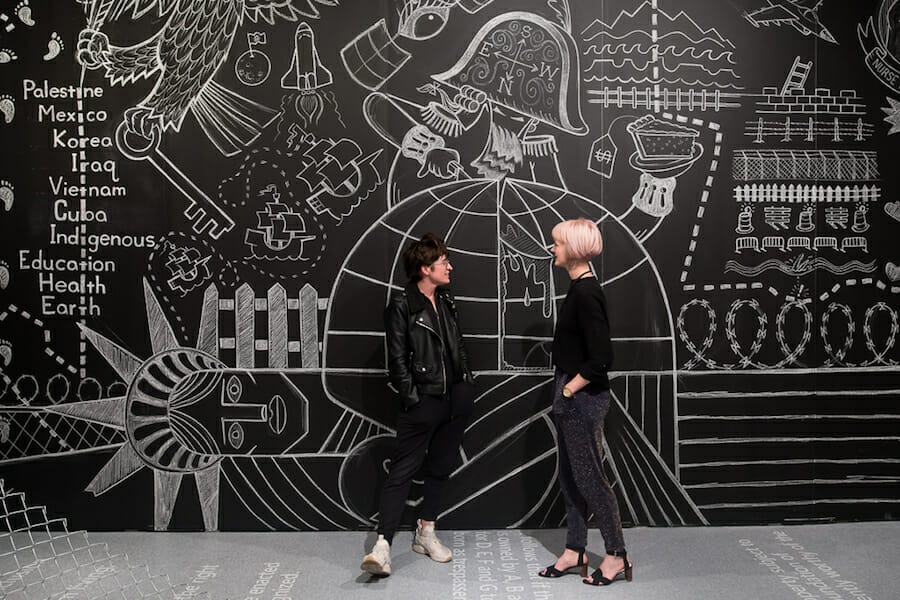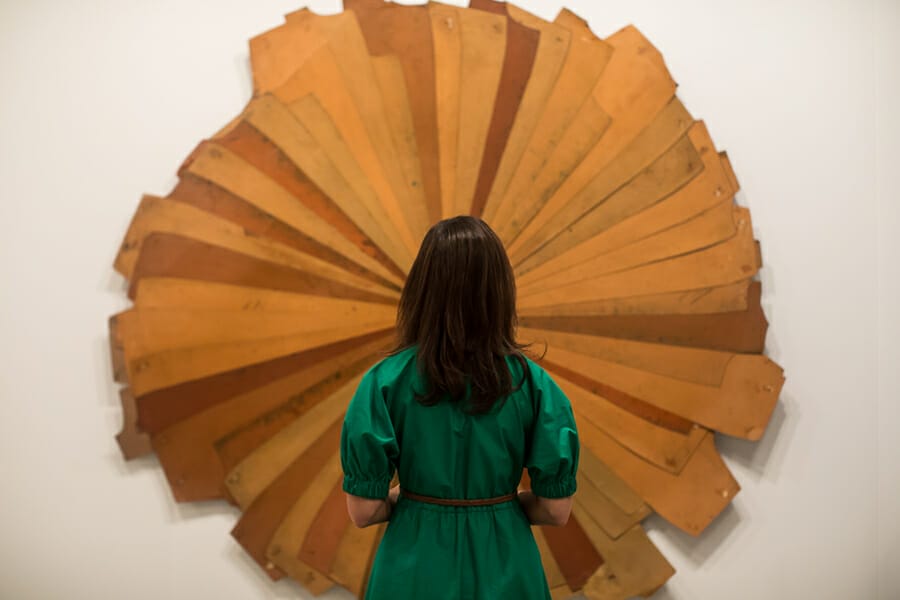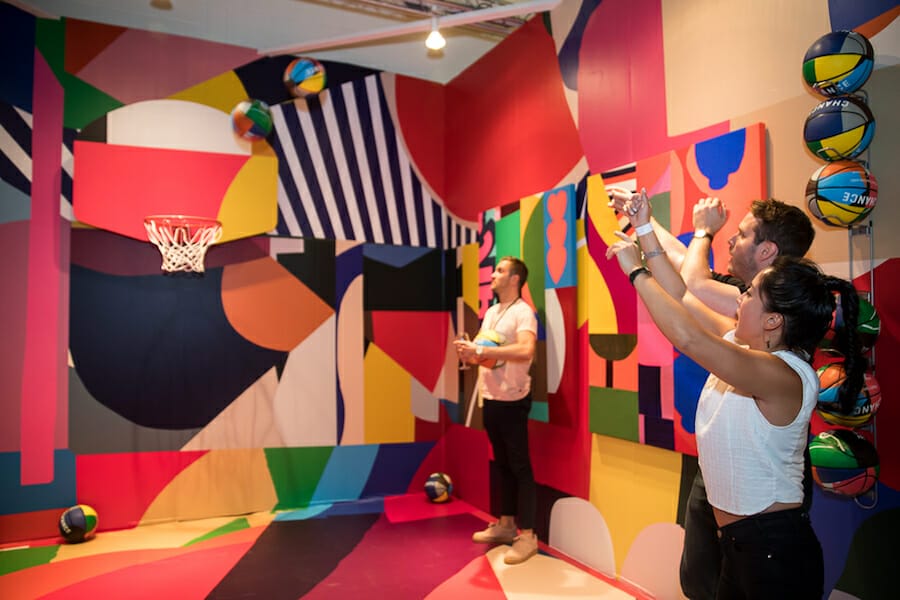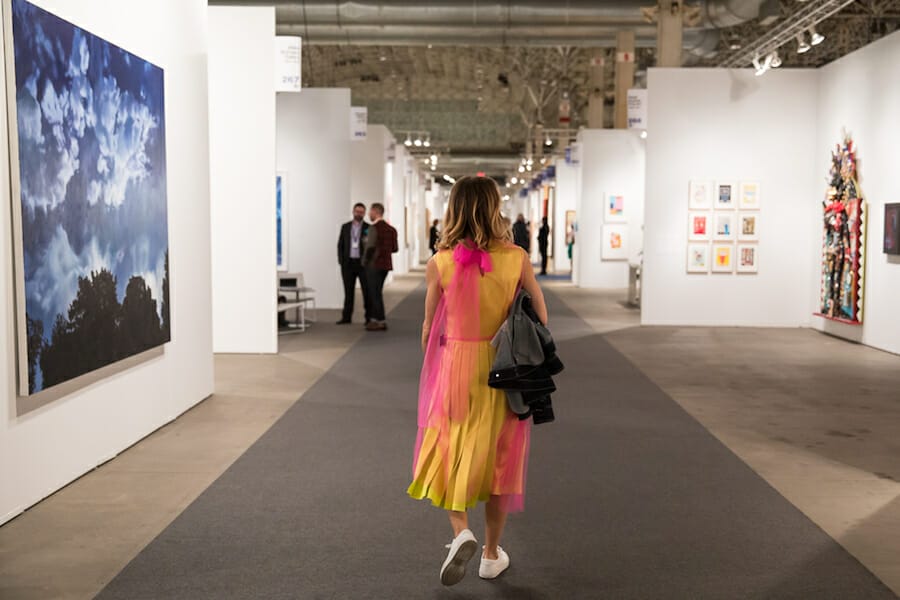Editor's Note: Read more about 2018 EXPO CHICAGO in these related stories--
EXPO CHICAGO Review- Three Highlights
and
When entering EXPO CHICAGO at Navy Pier, it’s easy to get overwhelmed by in the glitz and the glam that accompanies the vast art sprawl throughout Festival Hall. The space is laid out like a super charged art gallery and it’s hard to decide where to look first. This four-day event packs a big punch and takes some serious strategizing to figure out how to get the most bang for your buck.
/Dialogues – An EXPO CHICAGO Highlight
/Dialogues both invites us to engage in critical thought and conversations while interacting with the art on display at EXPO and give context to specific exhibited artwork. They typically include a panel of esteemed art critics, artists, art academics, and other art professionals who discuss a variety of topics from the culture of modern art criticism to the socio-cultural significance of art on display.
/Dialogues: Art Critics Forum - Criticism and the Image
The Art Critics Forum /Dialogue aimed to answer the question of how the role of the image has changed art criticism in the age of Instagram and Google Images.
The panel consisted of Ann Binlot (Freelance| Forbes, Galerie, The New York Times), Robin Peckham (Independent Critic, Former Editor-in-Chief, LEAP), William S. Smith (Editor, Art in America), Diego Del Valle Rios (Editor, Terremotto), and was moderated by Julieta Aranda (E-Flux).
The forum began with a 20-minute visual essay of images selected by each of the panelists. These various images included screen shots of incomplete Google searches, MEMEs, and Sonic Youth album covers. However, beginning the talk with what struck this reviewer as a particularly uncomfortable silence seemed to result in some patrons simply leaving the /Dialogue before the panelists began their discussion.
One of the main tensions the panelists grappled with was the effect of social media, and specifically Instagram, on the power of art.
Many panelists voiced concerns that the constant stream of images we are subjected to daily may be diluting art. “On one hand it’s a way for the rest of the world to be exposed to art that they’ve never seen before; but on the other hand it does kind of dumb down the field, so it goes both ways,” Panelist, Ann Binlot said.
Smith said, “But this hyper visual culture is not all bad, in fact it’s added to the art world. I think it’s great that people are becoming hyper literate in images and I think it’s possible to perceive a form of criticism in that is purely image based. There are modes of art that in a way constitute this kind of criticism already. I think a lot of appropriation art is essentially art criticism by other means, or image criticism [...] so I can see something really productive happening there as people become more fluent in this language of image consumption.”
Building on their discussion of art in the hyper visual age, Smith then discussed how print art publications like the monthly Art in America might start becoming a lackadaisical luxury.
“I think there’s a slowness that functions as a counterweight to the broader culture and I think a lot of readers [...] await that slowness with a certain luxury.” Smith said. “I see a future in publishing precisely because it decelerates, while the whole world is constantly speeding up.”
The last moments of the forum brought in a discussion about the effect of memes on the global cultural consciousness. Referencing writings about the socio-political importance of memes, Diego Del Valle Ríos said, “In the south of Latin America, in a system that lacks of education, and relies on the consumption of images and spectacle as the way of articulating to the masses, [...] memes are a way to insert critical thinking.”
Del Valle Ríos continued, “For example, in Mexico specifically, they are a very powerful way of disseminating critical positions of the state produced by its own population. It’s not the government generating these memes.”
More information on EXPO /Dialogues can be found on EXPO CHICAGO website.
Editor's Note: Read more about 2018 EXPO CHICAGO in these related stories--
EXPO CHICAGO Review- Three Highlights
and

